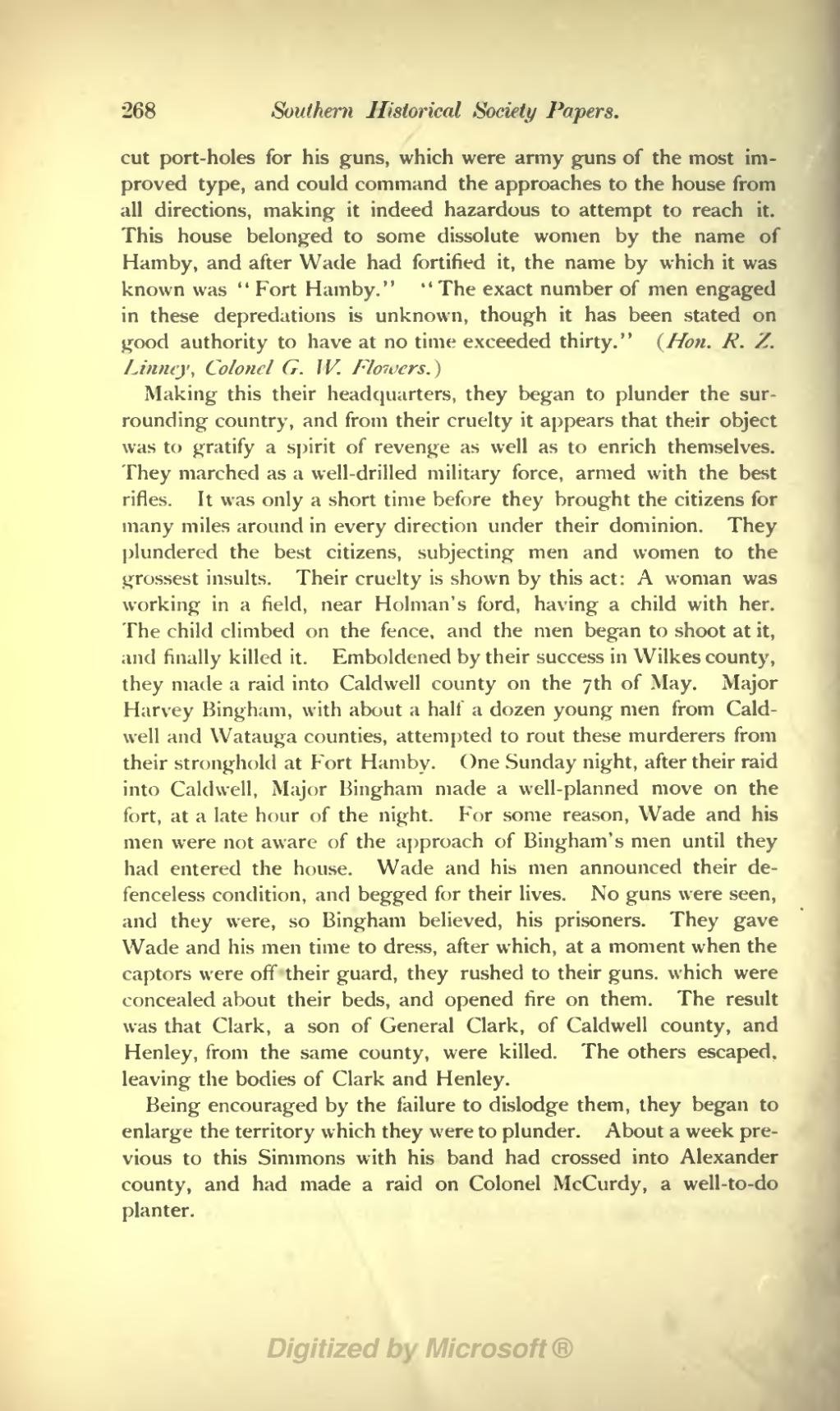268 Southern Historical Society Papers.
cut port-holes for his guns, which were army guns of the most im- proved type, and could command the approaches to the house from all directions, making it indeed hazardous to attempt to reach it. This house belonged to some dissolute women by the name of Hamby, and after Wade had fortified it, the name by which it was known was " Fort Hamby." " The exact number of men engaged in these depredations is unknown, though it has been stated on good authority to have at no time exceeded thirty." (Hon. R. /. Linney, Colonel G. \V. Flowers.}
Making this their headquarters, they began to plunder the sur- rounding country, and from their cruelty it appears that their object was to gratify a spirit of revenge as well as to enrich themselves. They marched as a well-drilled military force, armed with the best rifles. It was only a short time before they brought the citizens for many miles around in every direction under their dominion. They plundered the best citizens, subjecting men and women to the grossest insults. Their cruelty is shown by this act: A woman was working in a field, near Holman's ford, having a child with her. The child climbed on the fence, and the men began to shoot at it, and finally killed it. Emboldened by their success in Wilkes county, they made a raid into Caldwell county on the yth of May. Major Harvey Bingham, with about a half a dozen young men from Cald- well and Watauga counties, attempted to rout these murderers from their stronghold at Fort Hamby. One Sunday night, after their raid into Caldwell, Major Bingham made a well-planned move on the fort, at a late hour of the night. For some reason, Wade and his men were not aware of the approach of Bingham' s men until they had entered the house. Wade and his men announced their de- fenceless condition, and begged for their lives. No guns were seen, and they were, so Bingham believed, his prisoners. They gave Wade and his men time to dress, after which, at a moment when the captors were off'their guard, they rushed to their guns, which were concealed about their beds, and opened fire on them. The result was that Clark, a son of General Clark, of Caldwell county, and Henley, from the same county, were killed. The others escaped, leaving the bodies of Clark and Henley.
Being encouraged by the failure to dislodge them, they began to enlarge the territory which they were to plunder. About a week pre- vious to this Simmons with his band had crossed into Alexander county, and had made a raid on Colonel McCurdy, a well-to-do planter.
